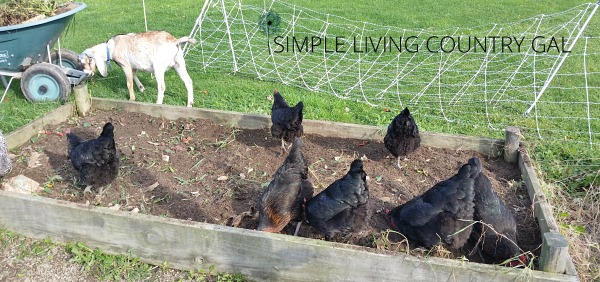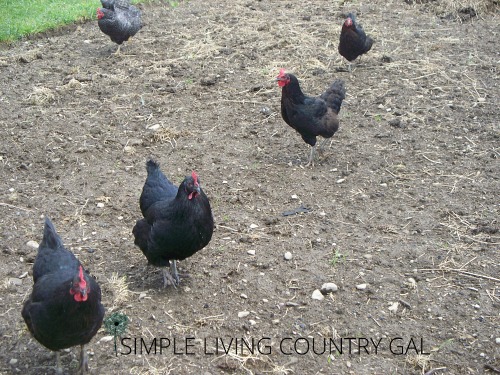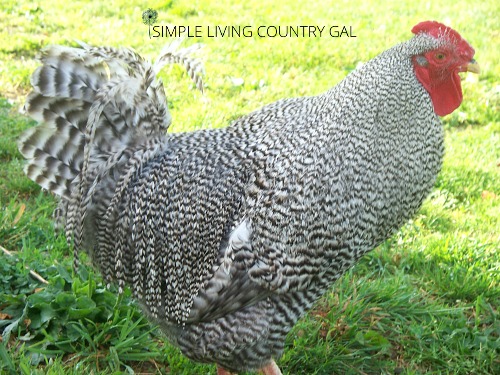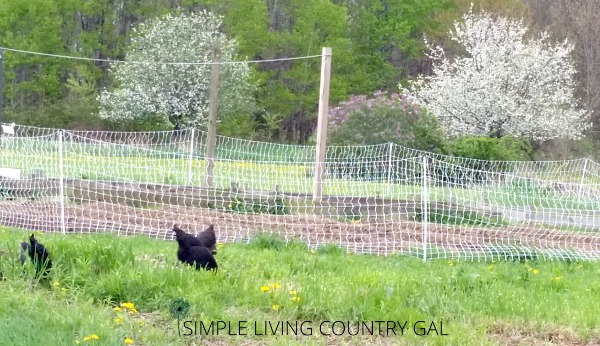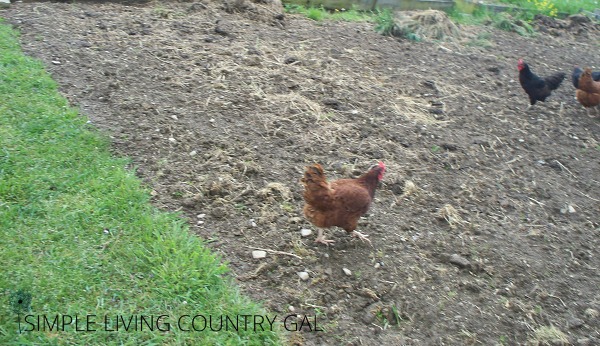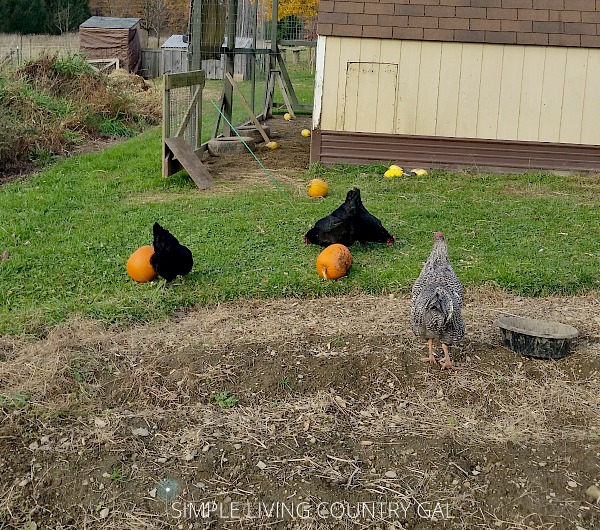How To Free Range Chickens Next To Your Garden
If you are looking for tips on if or how you can free range your chickens next to your garden, I have a few ideas for you to read. Not a fool proof way but still tips that may work to let everyone live happily without your flock devouring your crop of tomatoes.
Raising chickens can be tricky but once you know a few tips you will learn to love these quirky birds.
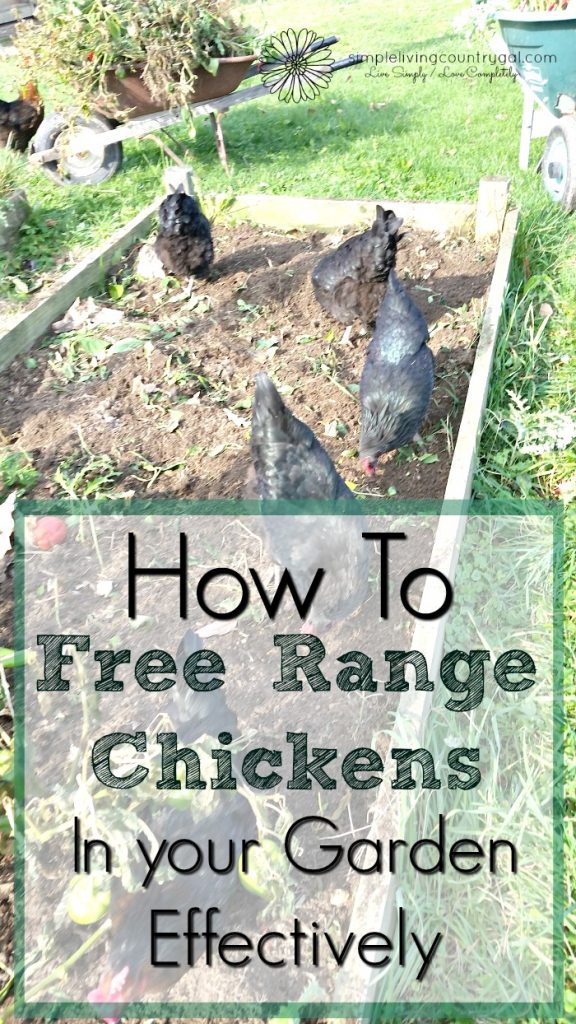
I love chickens. To me, they are some of the most comical and entertaining animals on our homestead. They prove this every day as I go out each evening to feed them. One hen catches a glimpse of me and gives a squawk which alerts everyone else….. and…they’re….OFF!!
They come at me doing this run, jump, fly sort of thing only chickens can do.
It’s true chickens have some unique behaviors, one of them being their love of scratching the ground with their feet.
What does it mean when chickens scratch?
Scratching is when a chicken uses its feet to “scratch” or “rake” at the ground in an effort to bring up bugs and worms to the surface. It is not only a way to find food but it is also a calming action for the hens.
If you have ever seen a hen scratch, it is really quite amazing. They look forward as they scuff the ground with each foot, then back up and peck at what they find. Over and over, they do this until they are full or want to move on to another area.
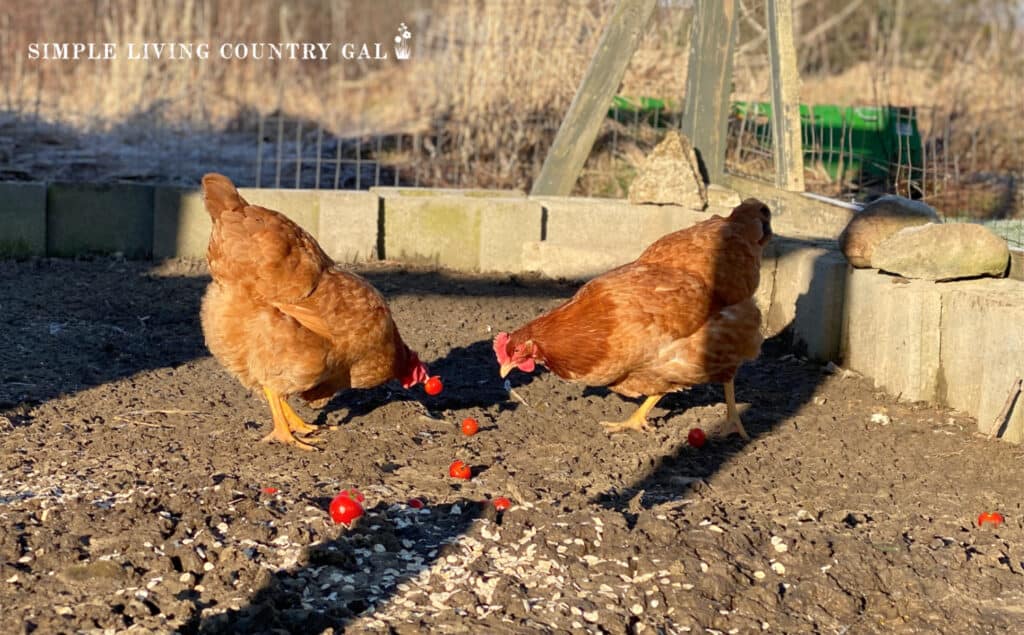
Fun Fact: A hen can spot a worm 30 yards away. I have held them up, and within seconds… one of my hens will come from nowhere and pluck that worm from my fingers.
On the downside, chickens are indescribable scratchers meaning, they do not care if you have delicate plants in the area or not. If there are bugs or worms, they will scratch up an area completely. This can cause damage to your plants and is important to keep in mind.
If you let your chickens loose anywhere in your yard and you have a garden, for example, there is a high probability that they scratch in that area destroying your entire setup.
I remember my first year with a coop, I let my chickens into my vegetable garden thinking they would eat the worms and bugs as I planted my little tomato plants in peace and harmony. Unfortunately, this did not happen. Instead, they scratched and uprooted my new plants tossing dirt, leaves, and roots up into the air.
So, then why on earth did I choose to house my chickens right next to my garden permanently? I found a way to use my chickens as a tool for my garden instead of destroying it.
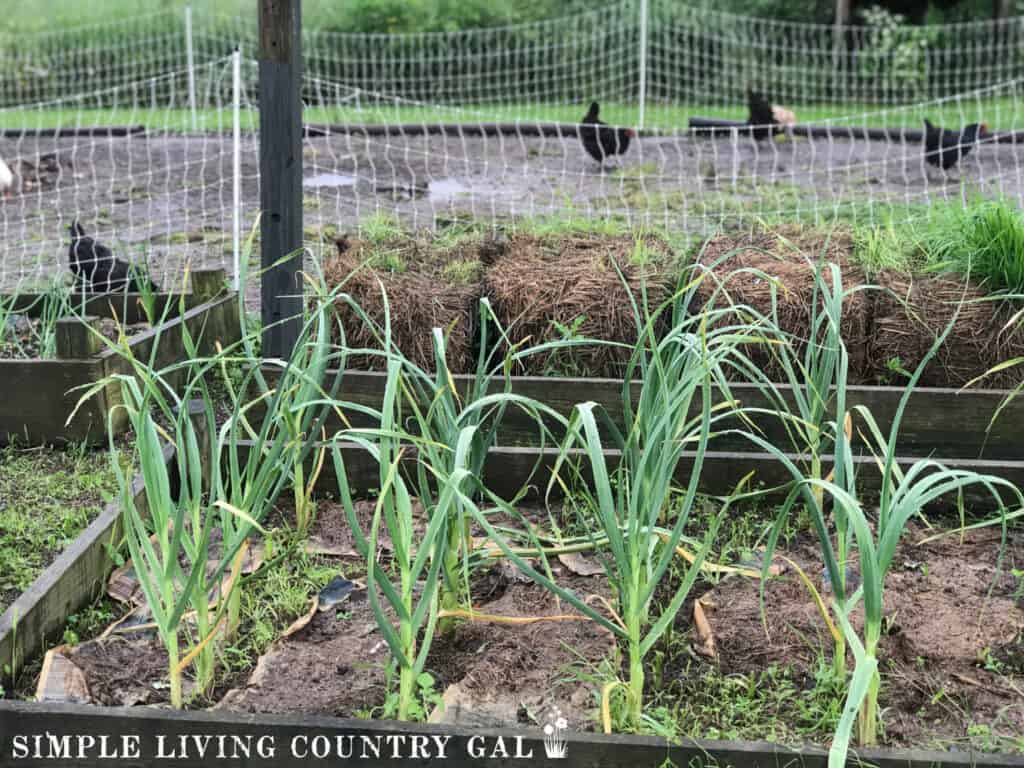
Normally, I only free-range our chickens at certain hours of the day, from 3 p.m. until nightfall. I limit my chicken’s free-range time for two reasons.
#1. First, waiting until the afternoon to let my chickens out of the coop, it ensures that my eggs are always in the nesting boxes where they are protected.
SLCG PRO TIP: Most free-ranging hens will lay their eggs when they want and where you want. Something to keep in mind before you start to free range.
READ: How to Safely Free Range Your Chickens
#2. Next, it assures me that my hens are safe inside their coop during twilight and daybreak when it is still a bit dark out.
If you still need to predator-proof your coop, read How to Create a Predator Free Chicken Run.
Supervise Your Chickens
When our chickens are free-ranging, I like check on them frequently throughout the day. Hens have a one-track mind, especially when they are scratching for treats, and can quickly find themselves in trouble without even realizing it.
So, if chickens will lose track of time, forget where they are, and unintentionally kill plants…..how do I safely and effectively keep free-range hens next to my garden?
Over the years, I have learned how to get my hens to scratch where I want and when I want. They are amazing bug eaters, and I cannot tell you how much my garden has thrived since I have included my hens in my soil prep.
Chicken Coop Resources:
Chickens love slugs and grubs, which in our area is a garden destroyer. So having them work on this issue for us as much as possible for as long as possible has completely changed my summer harvest from dismal to amazing.
How to Free Range Your Chickens Next to Your Garden
Tip #1. Limit the Time You are Free Ranging
As you read above, this is important for your hen’s safety and your egg’s safety as well. You can’t enjoy or sell your eggs if you can’t find them. Letting hens out later in the day will keep those eggs in nesting boxes, where they will be protected until you collect them.
Tip #2. Have a Rooster
Roosters get a bad rap, but when protecting your flock, nothing does it better. Not only will they warn the hens of impending danger, but they will warn you as well.
Learn the sounds of your hens and rooster so you know when something is not right. Don’t have a rooster and want to add one? Read here on How to add a Rooster to your flock for tips.
Tip #3. Protect Your Garden
Before our garden is planted, we let our chickens have full access. Once our garden is planted, I keep a fence around it at all times. Just a simple fence netting that really protects my garden not only from the chickens but from other animals as well.
RentACoop Poultry Netting Electric Fence (48Chicken Wire 13.7 in x 236 in Poultry Wire Netting Hexagonal Galvanized Mesh Garden Fence Barrier for Craft Projects, Pet Rabbit Chicken Fencing
Starkline Standard Electric Poultry Netting 42
Bird Netting,7x100FT Garden Netting for Garden Protection, Durable Deer Fencing Net, Protecting Plants, Fruit Trees, Vegetables from Birds and Other Animals
It is a bit of a cost investment, but the quality of this fence means it has lasted us for many years now. Yes, it is electric, but I have found the openings are so small my hens cannot fit through, so they don’t even try. Another plus is it also keeps out everything else. Rabbits, groundhogs, deer, and even raccoons have all been kept away with this fencing. I am so happy I invested in it.
Tip #4. Use your Hen’s Scratching Skills to Your Advantage
I allow my hens to have access to my vegetable garden from September-May. This is helpful because my chickens will actually till up the soil and take it down to fine dirt, which is perfect for planting in come spring.
It still amazes me what they can do to clumpy soil. After a few days of scratching, I can jump in and grab any rocks that are exposed.
Giving our chickens access will also ensure they are getting any dormant pests in our garden soil.
Tip #5. Chickens Love Manure
In the offseason, I will use my garden as my compost bin. I usually put the manure around my garden in small piles and let my hens take it from there. They will scratch, rake, and break down large chunks of compost so it can be worked more easily into the soil.
By adding compost to the garden, you are using organic materials to naturally replenish the soil. Soil that worked to grow plants making it less than optimal for next year’s vegetables. Compost feeds the soil and is a great way to set up a healthier growing environment.
Tip #6. Chickens Also Love Bugs
In Northwestern PA, where I live, bugs are a problem for my plants. I used to have the worst time controlling pests, and because of this, I have lost many tomato crops due to infestations. Since I have enlisted the help of my flock, my garden has done much better.
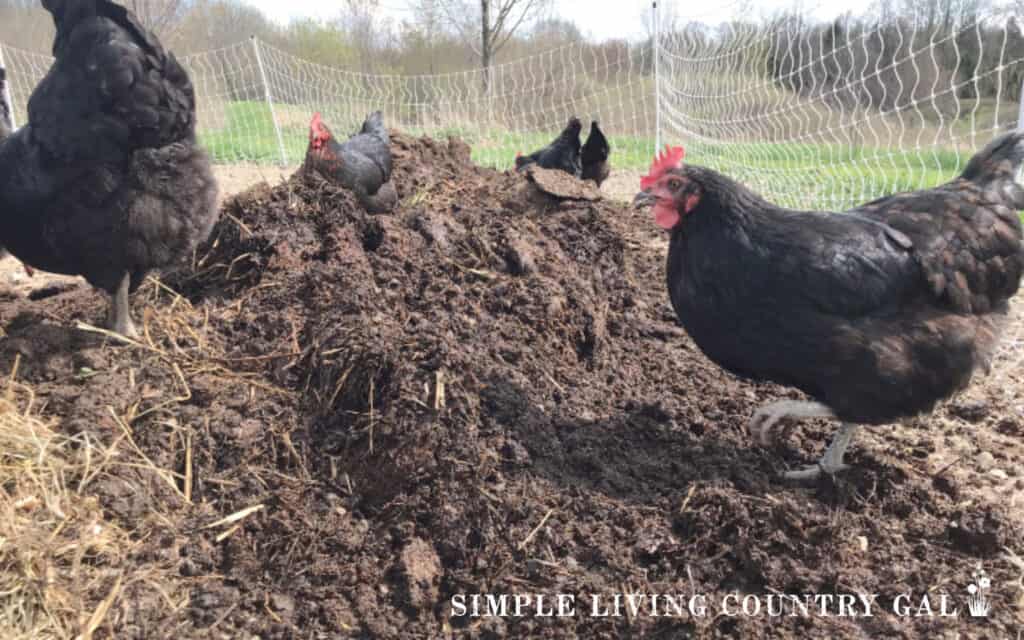
The chickens are now eating the bugs, eggs, and larvae, which, in turn, helps to control the population. This allows me to lean on more organic solutions instead of relying mainly on dangerous chemicals.
Using your chickens to heal your garden soil is a great way to utilize what you have on your homestead.
Tip #8. No More Wasted Produce
A great thing about having my coop next to my garden is when I have an overabundance of vegetables, and it ripens quicker than I can get to it, I now have a place other than the compost heap to put it.
Chickens LOVE produce from the garden, and they will wait patiently for me to bring them treats. Zucchini, squash, tomatoes, pumpkins, and melons are their favorites.
Remember to never give your chickens spoiled or rotten produce. Overripe is different than rotten, and a good rule of thumb that I like to follow is if I won’t eat it, then I need to toss it.
Learning to house your hens next to your garden will not only benefit your vegetables, but your chickens will love you for it. Tilled-up soil is heaven for a hen, and she will spend hours scratching for her own food. Food that includes bugs, eggs, larvae, even cocoons.
This will not only keep your hens happy but will save you money on feed as well.

